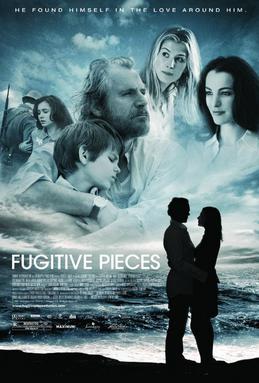A blog formerly known as Bookishness / By Charles Matthews
"Dazzled by so many and such marvelous inventions, the people of Macondo ... became indignant over the living images that the prosperous merchant Bruno Crespi projected in the theater with the lion-head ticket windows, for a character who had died and was buried in one film and for whose misfortune tears had been shed would reappear alive and transformed into an Arab in the next one. The audience, who had paid two cents apiece to share the difficulties of the actors, would not tolerate that outlandish fraud and they broke up the seats. The mayor, at the urging of Bruno Crespi, explained in a proclamation that the cinema was a machine of illusions that did not merit the emotional outbursts of the audience. With that discouraging explanation many ... decided not to return to the movies, considering that they already had too many troubles of their own to weep over the acted-out misfortunes of imaginary beings."--Gabriel García Márquez, One Hundred Years of Solitude
Saturday, October 15, 2016
Fugitive Pieces (Jeremy Podeswa, 2007)
I dislike the phrase "Holocaust film," which often gets used with a hint of condescension, suggesting that there is a genre of film that plays on our established feelings of grief and indignation about a terrible passage in history. It seems to imply that filmmakers who tell stories about the Holocaust and its effects are working with a subject that disarms criticism: that if it's about the Holocaust, a film doesn't have to worry about winning over an audience. That attitude ignores, for example, the controversy that surrounded Roberto Benigni's Life Is Beautiful (1997), which was both celebrated and condemned. The enormity of the Holocaust tends to overwhelm conventional cinematic narrative, so that the best films in which it forms the background are those that focus on the experiences of actual people like Oskar Schindler in Schindler's List (Steven Spielberg, 1993) and Wladyslaw Szpilman in The Pianist (Roman Polanski, 2002), or thinly fictionalized accounts drawn from personal experience, like Louis Malle's in Au Revoir les Enfants (1987). Jeremy Podeswa's Fugitive Pieces, adapted by the director from a novel by Anne Michaels, is one of those films that are almost swamped by the historical actuality of the Holocaust; it takes as its subject the experience of "survivor guilt." Its fictional protagonist, Jakob Beer (played as a child by Robbie Kay and as a man by Stephen Dillane), escapes from the Nazis but loses his family. He is rescued by Athos Roussos (Rade Serbedzija), a Greek archaeologist who was working in Poland on a dig and discovered Jakob hiding in the woods. Somehow -- the film is unclear on exactly how -- Athos smuggles Jakob out of Poland to his home in Greece, and after the war the two emigrate to Canada, where Athos has been invited to teach. Jakob grows up haunted by his childhood trauma, and his first marriage, to a woman named Alex (Rosamund Pike), ends when she reads his journals and discovers what a barrier Jakob's experiences have created between them. Jakob is particularly tormented by the loss of his sister, Bella (Nina Dobrev), a talented musician, who often appears in his dreams. Even after publishing a book about his life, Jakob doesn't fully overcome the past until after the death of Athos, whose wisdom he comes to appreciate with the help of another woman, Michaela (Ayelet Zurer). There is a subplot involving the Jewish couple across the hall from Athos and Jakob in Canada, whose son, Ben (Ed Stoppard), grows up hating his father, a Holocaust survivor, for his harshness: The father, for example, berates Ben for not finishing the apple he has been eating, reminding him how grateful people in the camps would have been for the food. Despite excellent performances from everyone, the film sinks too often into sentimentality and stereotypes: Serbedzija's performance is a standout, but he can't overcome the fact that Athos, though a university professor, is presented as too much the wise and kindly peasant-sage, preaching the value of ties to the earth. There are some major gaps in the narrative, like the journey from Poland to Greece, and some overall shapelessness, and the ending is much too pat.
Links:
Ayelet Zurer,
Ed Stoppard,
Fugitive Pieces,
Jeremy Podeswa,
Nina Dobrev,
Rade Serbedzija,
Robbie Kay,
Rosamund Pike,
Stephen Dillane
Subscribe to:
Posts (Atom)
